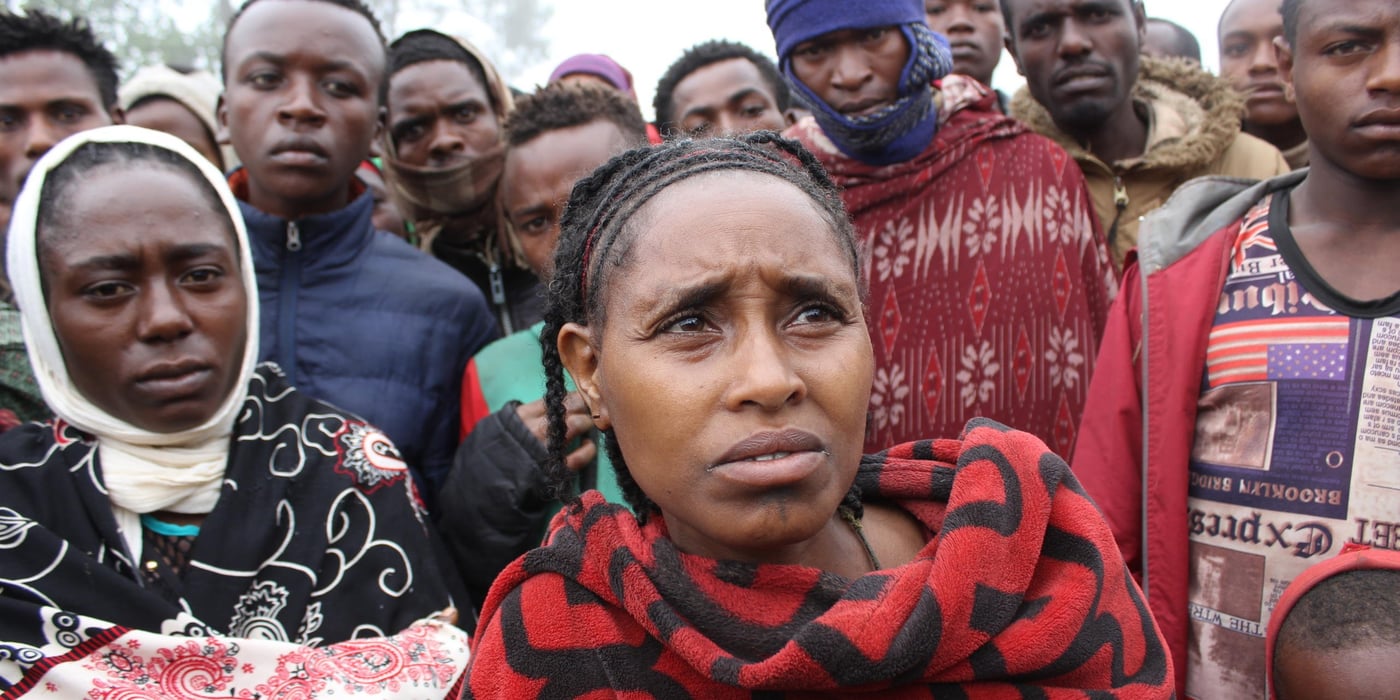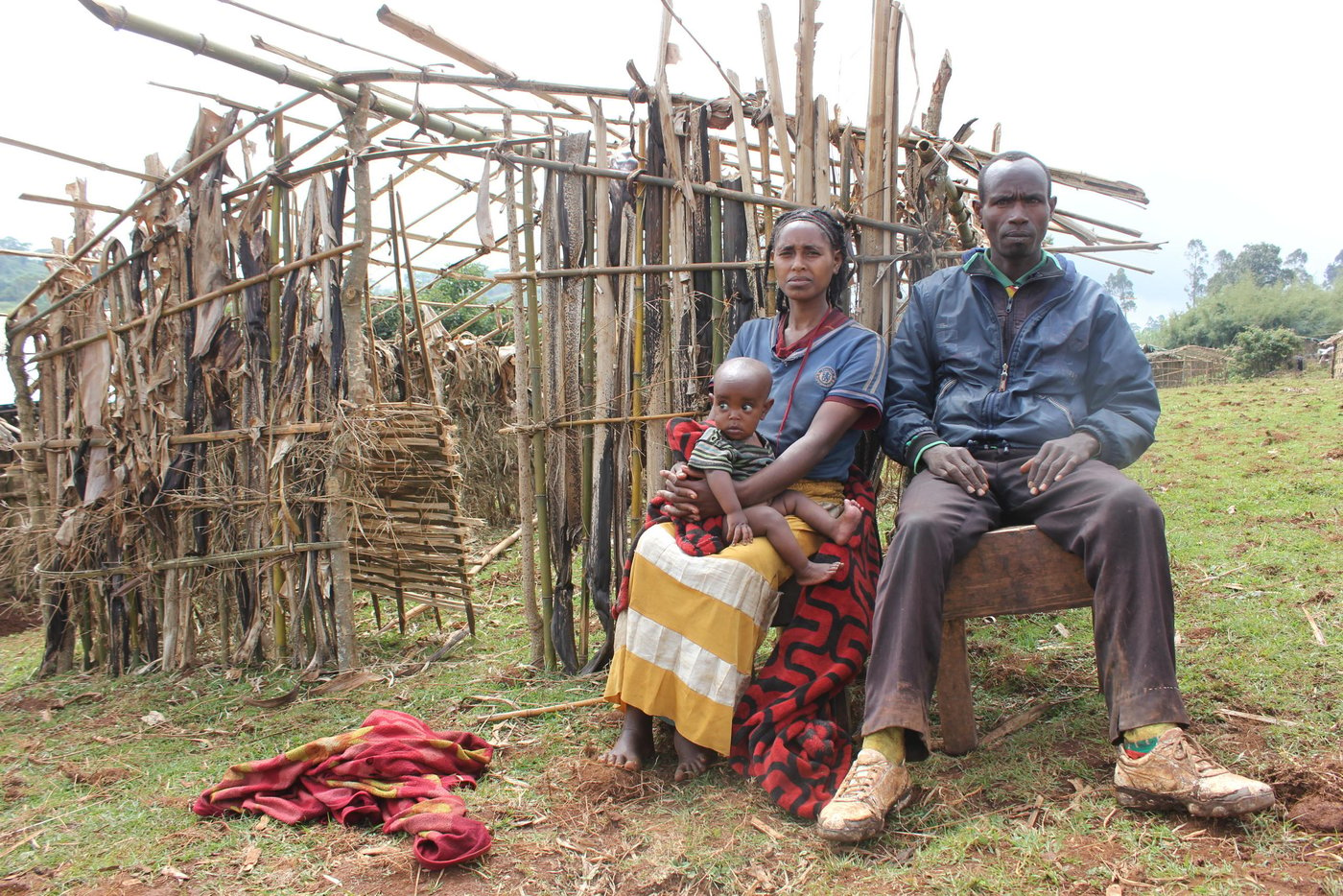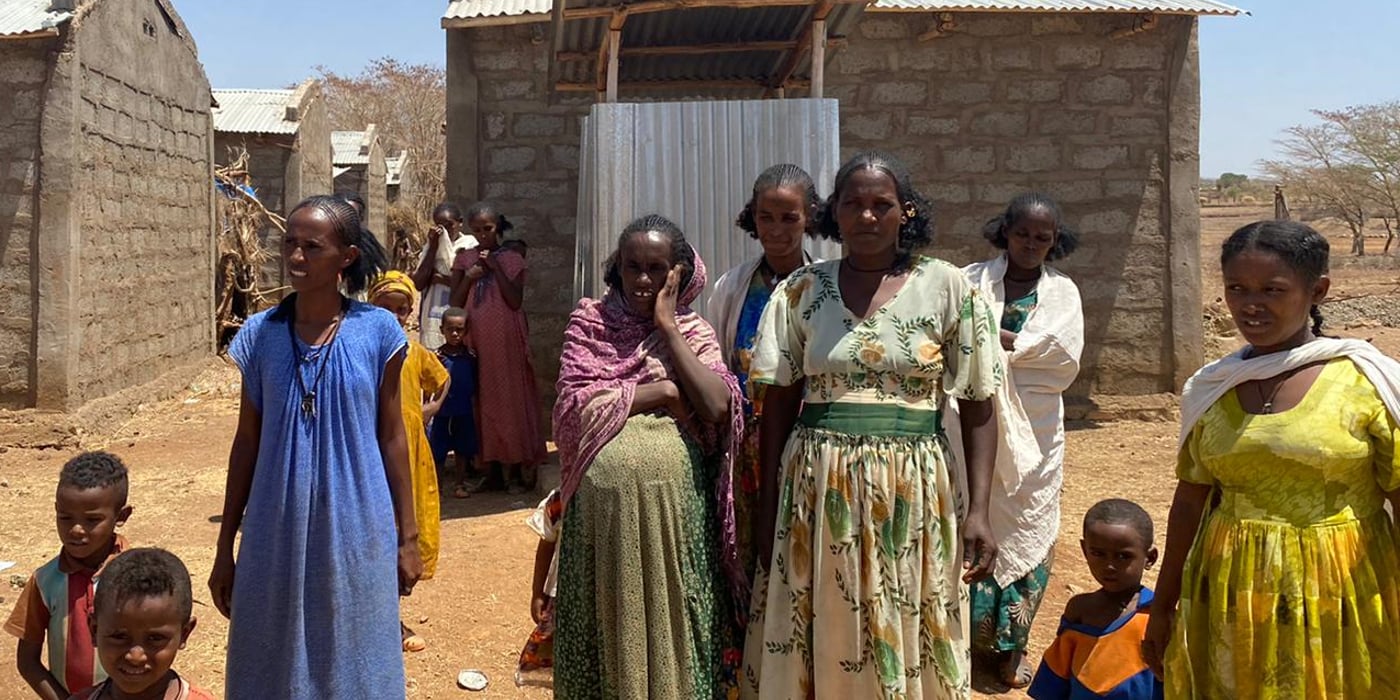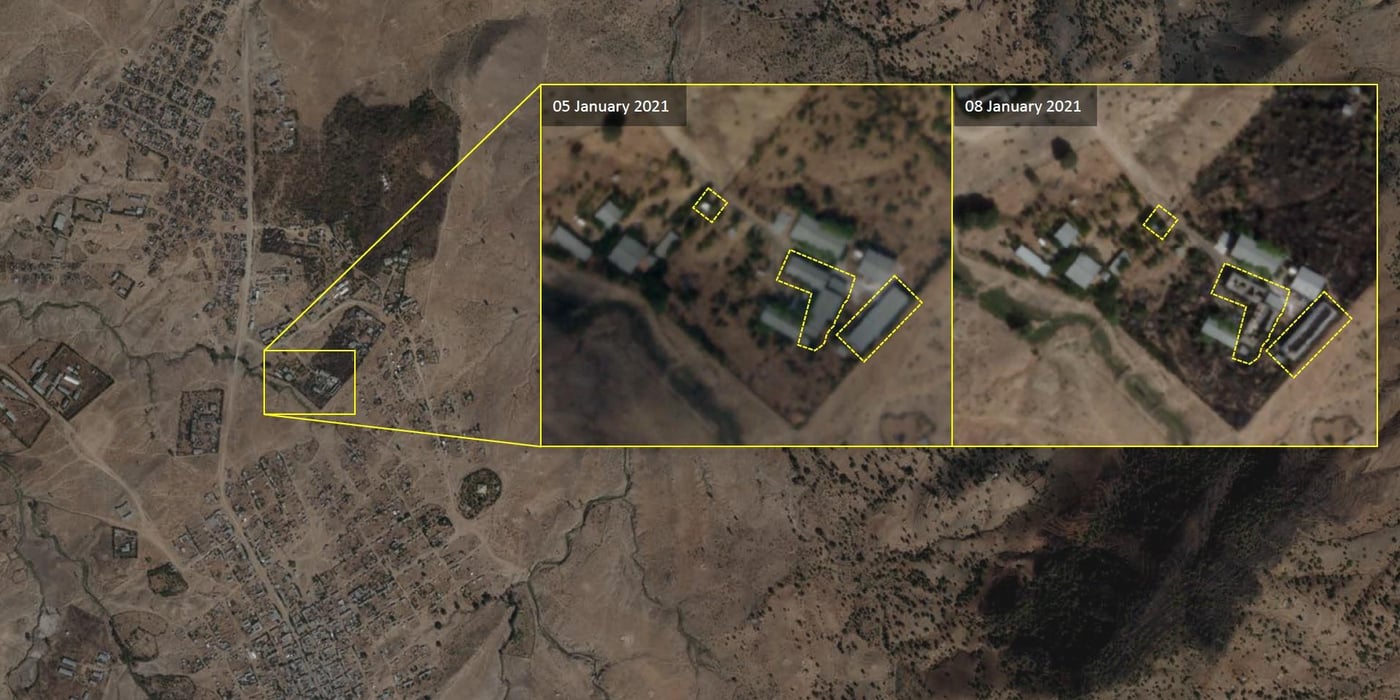
— Vi flyktet hjemmefra om natten for å unnslippe menn som kom med macheter. Vi forlot nesten alt vi eide, forteller Shubo.
Hun flyktet fra hjemmet i West Guji sør i Etiopia sammen med mannen og deres ni barn. Like etter brant familiehjemmet til grunnen.
Flyktninghjelpen jobber nå på spreng for å hjelpe Shubo og andre som er rammet av konflikten.
Mistet alt
Etniske sammenstøt og grenseoppgjør mellom innbyggere i ulike deler av den sørlige Oromia-regionen har tvunget store deler av lokalbefolkningen på flukt. Etiopia topper nå listen over landene hvor flest mennesker har blitt tvunget på flukt i eget land hittil i år, melder Flyktninghjelpens Internal Misplacement Monitoring Centre.
Mange familier har mistet hjemmet og levebrødet sitt i konflikten.
Vi hadde syv sauer og åtte kyr, men de ble konfiskert av menn med macheter. De plyndret den lille kaffebaren vår og stjal tretten poser med kaffebønner.Shubo er internt fordervet i Etiopia
— Vi hadde syv sauer og åtte kyr, men de ble konfiskert av menn med macheter. De plyndret den lille kaffebaren vår og stjal tretten poser med kaffebønner, forteller hun.
Det var ikke lett for Shubo å unnslippe volden som kom til nabolaget. Som tenåring fikk hun diagnosen polio, som har ødelagt det venstre benet hennes. Hun klarer ikke å løpe like raskt som resten av familien, og ektemannen Ayele måtte bære henne til sikkerhet.
Familien flyktet til en landsby nesten hundre mil unna. Her får de bo hos en slektning mens de venter på et nytt hjem.
— Alt vi ofret så mye for å bygge opp, er borte. Barna våre fryser i det kalde været. De mangler klær for å kunne holde seg varme, forteller Shubo.
Mens regntiden forverrer leveforholdene, gjør matmangel i regionen at mange familier går sultne.
— Vi lever på ett måltid om dagen, forklarer hun.
Drømmen om et nytt hjem
Shubo og Ayele har blitt tildelt en tomt av lokale myndigheter. Med pengestøtte fra Flyktninghjelpen har familien begynt å bygge et nytt hjem.

Ayele forteller at han skal bruke pengene til å kjøpe plastplater og bambuspinner, slik at han kan bygge ferdig veggene og taket.
— Åtte av barna mine bor for tiden hos broren min. Når vi er ferdig med å bygge huset, kan vi endelig bo sammen igjen, sier Shubo.
Shubo og ektemannen har foreløpig ingen planer om å dra tilbake til landsbyen sin.
— Huset vårt er ødelagt, og vi har mistet eiendommen vår. Situasjonen hjemme er fremdeles spent. Det forholdet vi hadde med nabolandsbyene har blitt ødelagt, sier hun.



